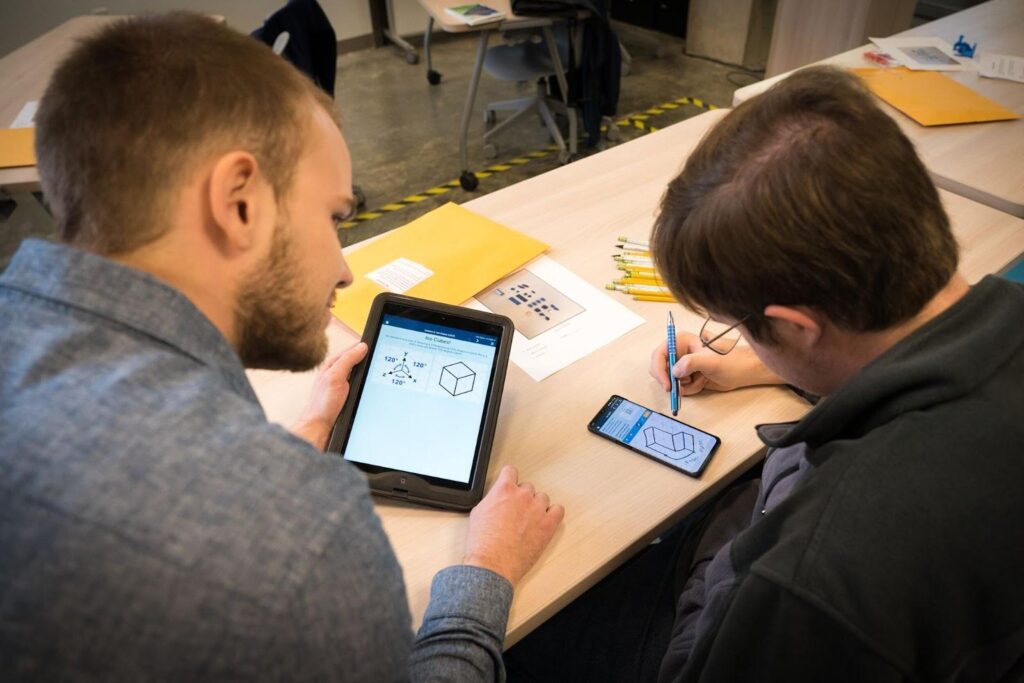A Social Security Disability Insurance (SSDI) hearing, presided over by an Administrative Law Judge (ALJ), involves various witnesses and professionals who provide their insights about the claimant’s disability. One such professional you can expect to encounter at your disability hearing is a vocational expert.
Vocational experts are professionals who have extensive knowledge about the current labor market, job classifications, and the physical and mental demands of various occupations. They are typically experienced in vocational rehabilitation, counseling, or job placement.
Vocational experts play a pivotal role during the ALJ hearing. They provide expert opinions on the claimant’s occupational abilities based on their medical conditions, educational background, work history, and age. Their testimony can significantly influence the judge’s decision.
Many ALJs heavily rely on the vocational expert’s testimony when making their decisions. Therefore, understanding the role of a vocational expert in SSDI hearings can be crucial for claimants seeking disability benefits.
The Role of Vocational Experts in SSDI Hearings
If you’re seeking legal advice on SSDI, it’s important to understand the role of a vocational expert in SSDI hearings. A vocational expert is a professional who provides expert testimony at your hearing, and their input can significantly influence the outcome of your case.
Vocational experts are professionals with extensive knowledge of the labor market, job classifications, and the physical and mental demands of various occupations. They are often present at SSDI hearings, with approximately 85% of all hearings involving testimony from a vocational expert.
The vocational expert’s testimony serves two main purposes:
- Clarifying Job Classifications: The vocational expert uses the Department of Labor’s Dictionary of Occupational Titles (DOT) to classify your past relevant work. This helps the ALJ and your legal counsel understand the nature of your previous jobs.
- Responding to Hypothetical Questions: The vocational expert answers hypothetical questions about the types of work someone with your limitations can and cannot do. These questions, often posed by the ALJ and your legal counsel, are based on your Residual Functional Capacity (RFC).
The vocational expert’s professional opinion on your occupational capacity can significantly influence the ALJ’s decision. They assess your ability to perform jobs based on your past employment, your limitations, and the information in the DOT.
Assessing Prior Jobs
The vocational expert will review your work history and categorize the jobs you’ve held according to exertion level and required skill level. Here’s what these classifications mean:
Exertion Levels
Exertion levels, as defined by both the DOT and SSA, categorize jobs based on the physical demands of the work. They include:
Sedentary Work: Jobs that involve mostly sitting and lifting no more than 10 pounds occasionally.
Light Work: Jobs that require a significant amount of walking or standing, light lifting (no more than 10 pounds frequently), and occasional heavy lifting (no more than 20 pounds occasionally).
Medium Work: Jobs that require significant walking or standing, occasional lifting of up to 50 pounds, and frequent lifting or carrying up to 25 pounds.
Heavy Work: Jobs that require lifting up to 50 pounds frequently, lifting up to 100 pounds occasionally, and extensive walking or standing.
Skill Levels

Skill levels, as recognized by the DOT, categorize jobs based on the complexity of the tasks and the level of training or experience required. They include:
Unskilled Jobs: Jobs that require little to no judgment and can be learned quickly (typically within 30 days).
Semi-Skilled Jobs: Jobs that require some level of training or experience and can be mastered within a few months.
Skilled Jobs: Jobs that involve complex responsibilities and require a high level of education and/or experience.
Understanding the role of a vocational expert in SSDI hearings can be crucial for claimants seeking disability benefits. If you’re preparing for an SSDI hearing, consider consulting with a legal professional who can guide you through the process and help you understand the implications of the vocational expert’s testimony.
Evaluating Your Past Work’s Exertion and Skill Levels in SSDI Hearings
During an SSDI hearing, the ALJ will ask you to provide a detailed description of your work history. This is to accurately assess the level of skill and exertion required for your past jobs. A vocational expert, after reviewing your work history report and hearing your testimony about your duties, will then categorize each of your previous jobs according to their required skill and exertion levels.
Vocational Expert’s Assessment of Work Ability
After hearing your testimony regarding your disability, the ALJ will question the vocational expert to ascertain whether you can return to your previous line of work. This is a critical part of the hearing because if the vocational expert believes that someone with your limitations could still perform the duties of your past job, and the ALJ agrees with the vocational expert’s assessment, your claim may be denied.
It’s important to note that the vocational expert’s assessment is not the final decision. The ALJ will consider all the evidence, including your medical records and your own testimony about your symptoms and limitations, before making a decision.
The Importance of Accurate Testimony
Your testimony about your past work and your current limitations is crucial. It’s important to be as accurate and detailed as possible when describing your past work and how your disability affects your ability to work. Remember, the vocational expert and the ALJ will rely heavily on your testimony when evaluating your claim.
The Importance of a Vocational Expert’s Testimony

While ALJs have extensive knowledge of disability laws and regulations, they are not experts in the fields in which the claimant is qualified to work. Therefore, the ALJ relies on the vocational expert’s opinion when deciding whether there are jobs available for you.
The vocational expert has a comprehensive understanding of your RFC and how it affects your ability to work. Thus, the vocational expert’s opinion can be a deciding factor in your case.
Conclusion
The vocational expert’s testimony is a crucial part of the disability hearing process. It’s important to prepare to answer any questions that the vocational expert may have for you. A qualified disability attorney can help you navigate this process, ensuring that you’re well-prepared for your hearing and able to effectively respond to the vocational expert’s inquiries.


